The first year of the “Thirteenth Five-year Plan” began in 2016, while the current economic slowdown has been going on for more than five years. As structural transition, business model reconstruction, and potential risks continue to impose a great downward pressure on Chinese economy, “Where is the bottom of the economic downturn?” has become a common concern. Under such circumstances, what kind of opportunities and challenges will supply-side reform bring to social and economic development? How will big data and financial innovation rejuvenate China’s capital market? Can the real economy successfully weather the bad times and achieve reasonable growth?
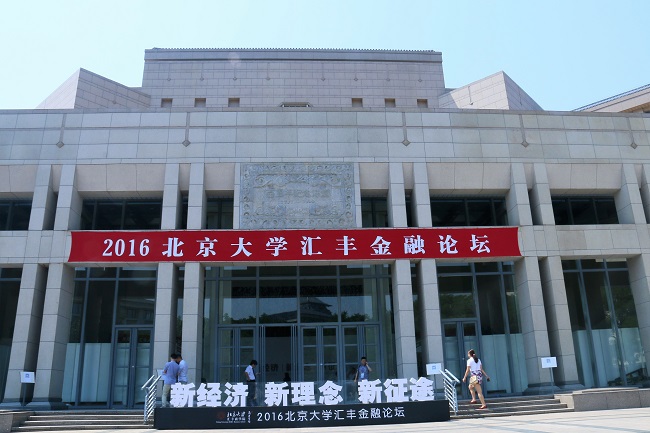
On June 17, the 2016 Peking University HSBC Financial Forum and EDP “China GT “annual conference kicked off at Peking University Centennial Hall in Beijing. Co-hosted by the Peking University HSBC Business School (PHBS) and the PHBS Finance Research Institute, this year’s forum featured the theme of “New Economy, New Perspective and New Journey” with a focus on China’s economic situation and problems in 2016. The event provided entrepreneurs nationwide a platform to better understand new economic trends and explore the new business pattern transformation through the insights of a number of experts. The topics at the three-day conference ranged from supply-side reform, the “sharing economy,” corporation management, sustainable development, entrepreneurship, and venture capital Investment.
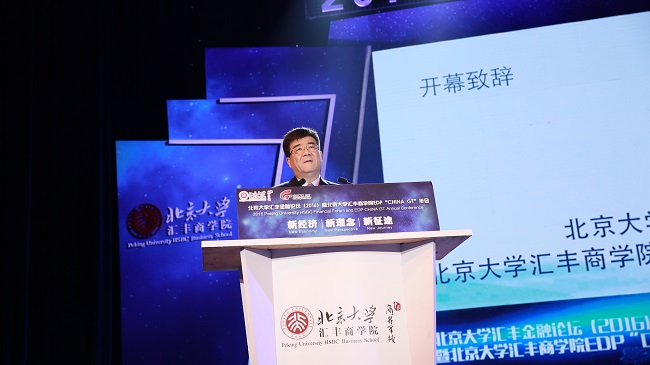
PHBS Dean Hai Wen
PHBS Dean Hai Wen presided over the forum. In his opening remarks he noted that the aim of this annual forum is to broaden PHBS EDP program participants’ horizons and enhance their abilities and competence, which is consistent with the goal that PHBS holds: a world-class business school should cultivate business leaders with global vision, leadership, responsibility, and competence.
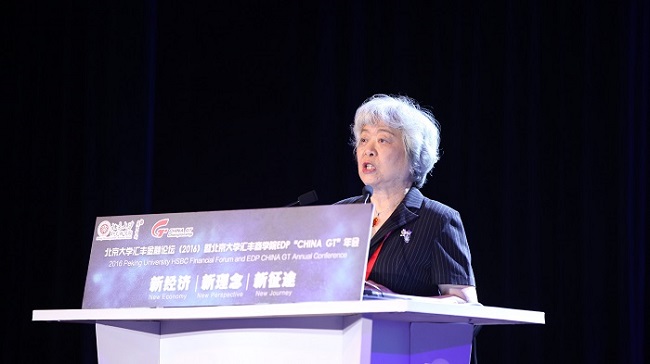
Wu Xiaoling, former vice president of the People’s Bank of China
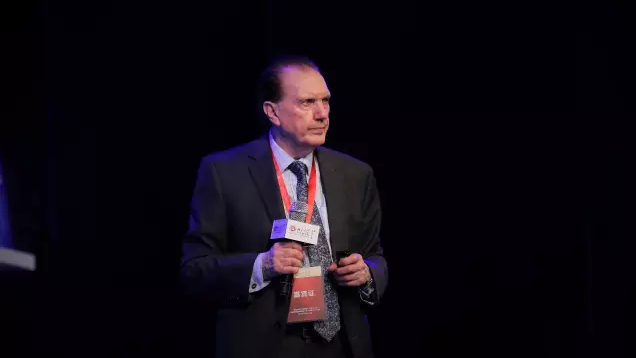
Paul Temporal, a PHBS visiting professor and professor at Said Business School of Oxford University
In attendance at the forum were Wu Xiaoling, former vice president of the People’s Bank of China ; Zhang Xiaoqiang,former vice director of the National Development and Reform Commission;Ba Shusong, PHBS Professor, chief economist of the Hong Kong Stock Exchange and the China Banking Association; Huang Nubo,president of Beijing Zhongkun Investment Group Co., Ltd, among others. Further, world-renowned brand expert, Paul Temporal, a PHBS visiting professor and professor at Said Business School of Oxford University gave a keynote speech on
Transformation: Why China Needs a Brand Strategy, sharing his insights with Chinese scholars , entrepreneurs and attendees.
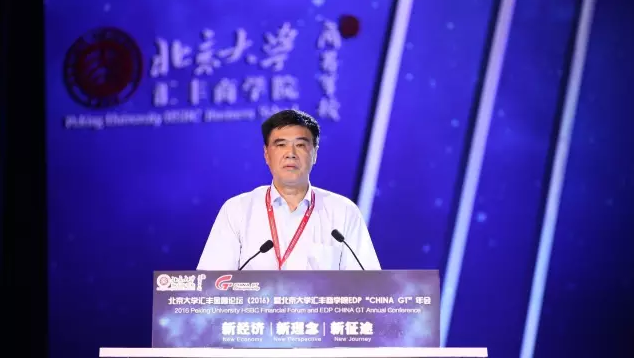
Zhang Xiaoqiang, president of Beijing Zhongkun Investment Group Co., Ltd
On the first day of the event, high-level policy makers, renowned economists, scholars, and entrepreneurs provided their insights on two topics: “
Macroeconomic Situation and Finance Development Trend,” and “
Enterprise Transformation and Upgrading.” Wu Xiaoling emphasized the role of proactive fiscal policies and the necessities of leverage structure adjustment. Zhang Xiaoqiang discussed the significance of “One Belt and One Road” strategy for the sustainable and healthy development of the economy. During his remarks, Dean Hai Wen held a positive outlook for China’s economy due to the fact that there is still growth potential in China. He said that during the transition from a planned economy to a market economy, government can play a significant role. He further pointed out that development and reform of the service industry, urbanization, innovation and integration of manufacturing industry, and the ”One Belt and One Road strategy” are four engines that will boost economic growth in China.
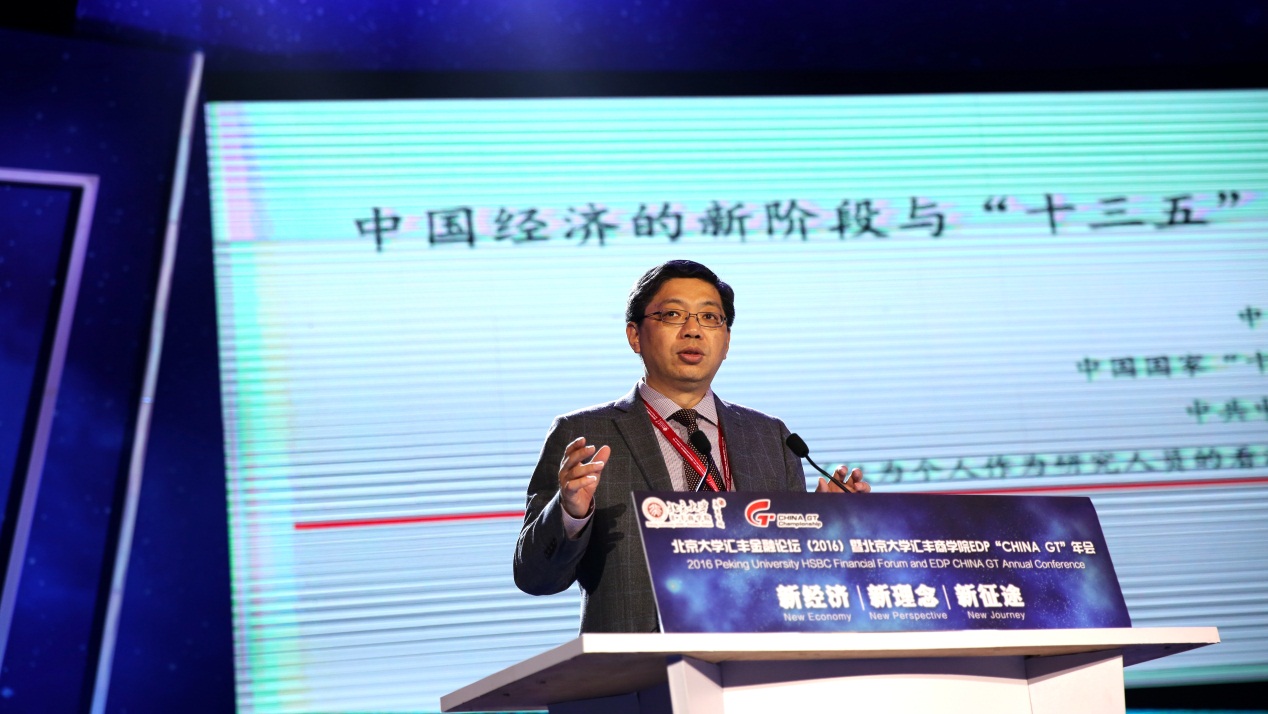
The second day of the forum began with three sub-forums themed, “Big Data and Finance Innovation,” “Industrial Opportunities under Supply-side Reform,” and “Enterprise Upgrading and Supply Chain Finance.” Attendees talked about the changes and opportunities in the consumer market as well as the sharing economy and collaborative innovation. In the afternoon, Ba Shusong, Pan Xiangdong and Chen Yu gave keynote speeches with a focus on capital market and capital strategy, offering attendees different perspectives on understanding the complex Chinese economy.
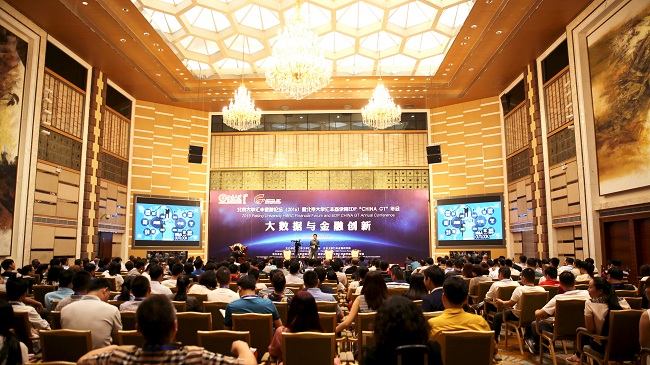
Peking University HSBC Financial Forum was established in 2009. Previous speakers have included Li Jiange, chairman of Sun Yefang Foundation and director of the National Institute of Finance; Cao Yuanzhen, chief economist at Bank of China; Huang Yiping, associate dean of the National School of Development (NSD), Peking University, and other scholars and experts. International scholars like Robert Lucas, Nobel laureate in economics, and investment expert Jim Rogers have also spoken at previous forums.
By Fabio Deng
Edited by Annie Jin and Priscilla Young





















